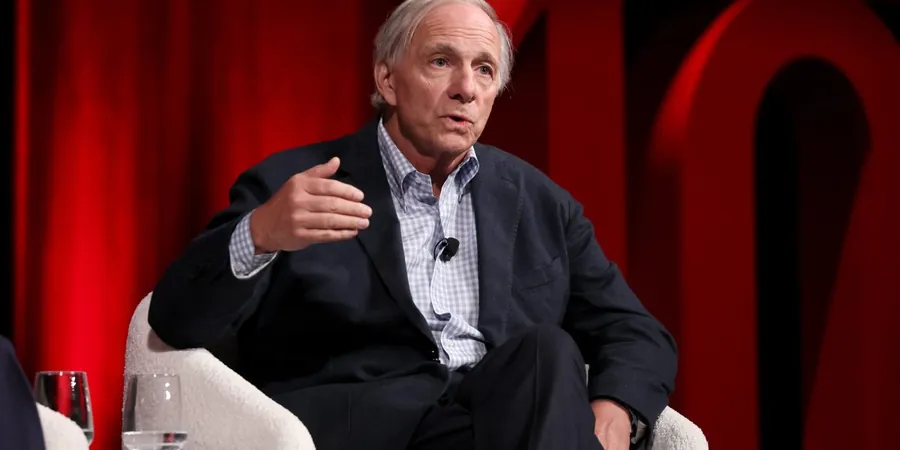
Ray Dalio Warns: Selling US Debt Could Soon Become a Struggle
2025-09-19
Author: Ken Lee
Ray Dalio, the founder of Bridgewater Associates, has been sounding the alarm about America's financial situation, highlighting its staggering $37.5 trillion national debt. With an estimated $1.13 trillion needed just in interest payments for the 2025 fiscal year, he expressed his concerns during a recent speaking engagement at the Future China Global Forum in Singapore.
Dalio believes that the U.S. government is unlikely to reduce its spending anytime soon, which could have dire repercussions for investors. While economists don't fear the sheer amount of debt, they are worried about the debt-to-GDP ratio. If borrowing continues to outpace economic growth, questions regarding the safety of these investments will inevitably arise.
Two Options: Spend Less or Grow More?
Governments generally have two strategies to manage their debt: cut expenditures or boost economic growth. Dalio argues that for the present U.S. administration, cutting spending isn't a viable option, stating, "they cannot cut back on its spending for various reasons." This has implications for both political sides, as the national debt has accrued over time under various administrations.
Interestingly, Trump's proposals have particularly raised eyebrows, including his One Big Beautiful Bill Act, which the Congressional Budget Office estimates will inflate the national debt by around $3.4 trillion. However, a proposed tariff system could offset a significant portion of that.
A Financial Imbalance?
According to the CBO, U.S. spending is expected to reach approximately $7 trillion in 2025, while revenue is projected at only $5 trillion. This significant gap could widen dramatically, with estimates suggesting spending could balloon to $10.7 trillion by 2035 and revenues only reaching $8.03 trillion.
Dalio cautioned, "The market in the world does not have that same sort of demand for that debt, creating a supply-demand imbalance." He emphasized that the growing debt crisis is a reflection of human nature rather than a specific government's policies.
Innovative Revenue Ideas from the White House
Despite concerns about Trump's policies, the White House is acknowledging the national debt issue and is exploring various revenue-generating methods. Among these is a controversial visa plan known as "Gold Cards," which would charge wealthy immigrants $5 million for green card privileges and a potential path to citizenship. Trump has claimed that selling a million of these cards could generate $5 trillion.
While critics have pointed out the somewhat impractical nature of this idea—given that a large portion of America's millionaires already reside in the country—economists have noted the positive intention behind attempting to boost government revenue.
A New Commitment to Action?
Despite the mixed reactions to these proposals, Dalio observed an increasing sense of realism from the current administration. He noted, "Speaking with Secretary Bessent and people in the administration, there is a greater realization of these problems and a proactive approach to handling them than before." This acknowledgment may be the first step towards addressing America's mounting financial challenges.





 Brasil (PT)
Brasil (PT)
 Canada (EN)
Canada (EN)
 Chile (ES)
Chile (ES)
 Česko (CS)
Česko (CS)
 대한민국 (KO)
대한민국 (KO)
 España (ES)
España (ES)
 France (FR)
France (FR)
 Hong Kong (EN)
Hong Kong (EN)
 Italia (IT)
Italia (IT)
 日本 (JA)
日本 (JA)
 Magyarország (HU)
Magyarország (HU)
 Norge (NO)
Norge (NO)
 Polska (PL)
Polska (PL)
 Schweiz (DE)
Schweiz (DE)
 Singapore (EN)
Singapore (EN)
 Sverige (SV)
Sverige (SV)
 Suomi (FI)
Suomi (FI)
 Türkiye (TR)
Türkiye (TR)
 الإمارات العربية المتحدة (AR)
الإمارات العربية المتحدة (AR)